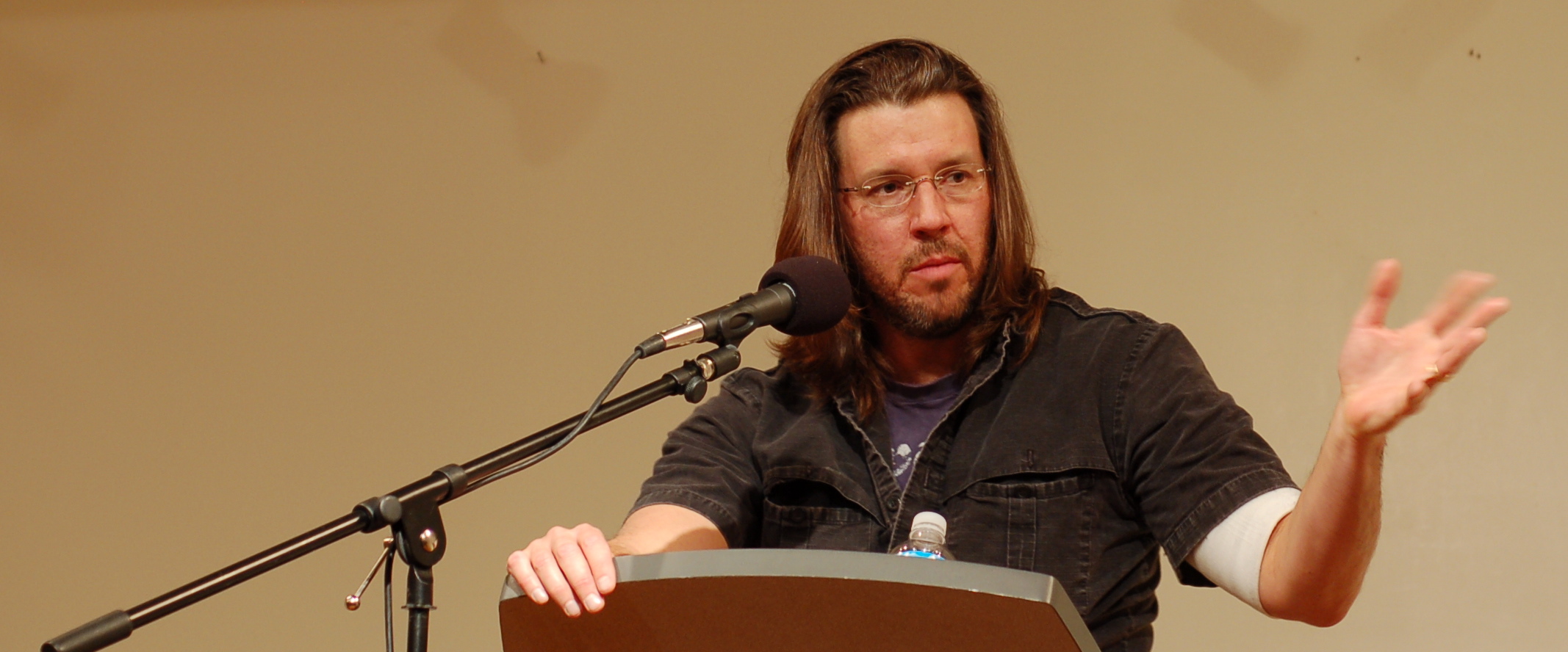
‘the books he produced in his short life are so complex, ambitious and entertaining that they dwarf a full career of many other writers’
Few people seem to fully understand the MA by Research in English at Durham. Very few choose to do it, just one or two a year compared to a very full taught MA program, and the reasons to do it seem even more confused. In a meeting last year while I was still an undergraduate, a certain English department member looked at me as if I was unwell when I said I had no intention of carrying onto a PhD, and my supervisor’s first words to me this year were ‘now what you’re doing is quite strange…’ But, really, it’s not so complicated. The MA by Research is just a year-long version of the undergraduate dissertation that reaches 50,000 words.
If that idea doesn’t terrify you then you’ll be able to enjoy how brilliant it is. No distractions, no fluff (except for handing in a research proposal for the Research Methods module, which isn’t marked anyway), just a year to throw yourself into the most interesting thing you can find in your favourite subject, mine being the American writer David Foster Wallace.
David Foster Wallace is slowly starting to grow in popularity in the UK, but he should be read much more than he currently is. He is the most modern and accomplished writer you can find today, one of the few who make information and entertainment overload their subject rather than winking at them by throwing in a joke about Facebook. It’s in the prose itself, a style that’s bursting with inventive language in sentences that run on and on like Faulkner’s (although, Wallace was the first to point out they are still grammatically perfect). You cannot imagine his work coming from any other time than our own. As Wallace described it, what we think of as realism in novels does not accurately describe the reality of how we experience our lives. Although his writing seems bizarre and outlandish at first, you soon realise he is closer to describing our actual experience of the modern world than anyone else. Tragically, he committed suicide in 2008 after a life long struggle with depression, but the books he produced in his short life are so complex, ambitious and entertaining that they dwarf a full career of many other writers.
His magnum opus is the giant novel Infinite Jest, but a better starting place is his second short story collection, Brief Interviews with Hideous Men, or his second essay collection, Consider the Lobster. The essays are brilliant fun to read but are also great takes on obscure aspects of modern life that serve as a synecdoche for modern western culture. Wallace’s perspective on the events or trends he reports on are never fantastically different from what we might already think ourselves, but they remind us of ideas we forgot we had, views that we never articulated to ourselves. His take seems always just a step away from our original prejudice, granting the reader permission, and encouraging them even, to think hard and carefully about the everyday aspects of our lives.
In his fiction, Wallace is much more ambitious but still entertaining in his electric prose. Brief Interviews is punctuated throughout by the titular story, consisting of stand-alone dialogues with men where the questions have been removed and the context goes unexplained. They are essentially monologues where the worst areas of masculine minds are explored. What makes them so horrifying is not that they are extreme examples of individuals, but that they are the extremes of ordinary, everyday minds.
With that in mind, you won’t be surprised to hear Wallace is demanding towards his readers. Some have accused him of overwriting in his liberal use of words or in ignoring the reader in his unconventional work. However, Wallace was always very aware of the relationship between writer and reader, and while being demanding, his books are not snobbishly hard for the sake of difficulty (well, perhaps his first short story collection is a little, when Wallace was a snobbish and freakishly clever creative writing student). Rather they invite the reader to be as ambitious as Wallace and explore and interrogate things that it is much easier to ignore.
Just the sight of the size of Infinite Jest might be enough to send many readers running, but he is worth every ounce of energy you put into his work. He never published anything that wasn’t at least enjoyable and interesting, and more often original and unique. If you’re tired of reading nothing that feels like it’s engaging with our own times with the ferocity and focus of a Dostoevsky or Dickens, then Wallace should be next on your reading list.
If you’re also wondering about an MA by Research, the best way to decide is to see whether you find the dissertation enjoyably challenging or torturous hell. It’s a great opportunity to indulge a shamelessly selfish interest for a year, just be prepared for more than a few confused looks, and the reality that the university is only faintly aware you are still in Durham.
